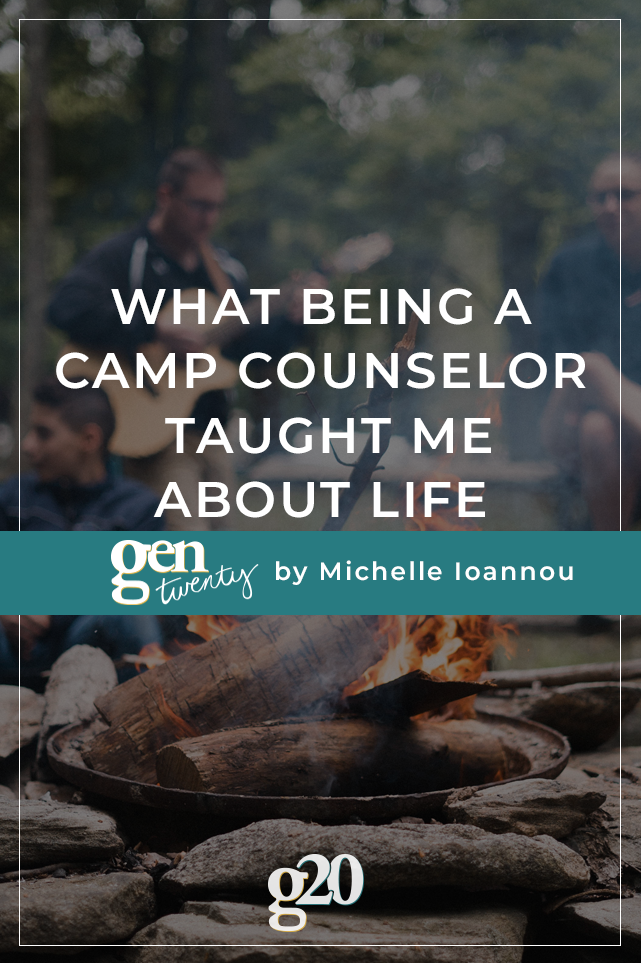
I was a summer camp counselor from summer 2009 until summer 2014, all throughout college and graduate school. In all honesty, if it were up to me, I would still be working as a camp counselor, but unfortunately, I needed something that was more than just during the summer months.
I do refer to that time in my life as the glory days, both because I was doing something that I absolutely loved, and because without even realizing it, I was growing as a person.
I worked at two camps during this time period – one in the states called Camp Saint Paul, and one in Greece called Ionian Village. Both camps were Greek Orthodox camps, allowing me to spend my summers spreading my love of my culture and religion to younger generations.
In addition to this though, being a camp counselor is something that is hard to put into words. The impact that you have on the campers, as well as the impact that they (and the camp itself) has on you.
If you’re a camp counselor reading this, I’m sure that you are nodding your head yes as you read that statement. Being a camp counselor truly does help prepare you for life by teaching you some helpful real life lessons.
Here are just some that I learned, and now fondly look back upon as I’m a few years into this thing they call the “real world” and no longer spending my summers at camp.
1. You learn to put others before yourself.
The campers come first. Always. If your camper is up at 3 AM crying that they are homesick, you are up with them, talking them through it.
If the counselor in the cabin next to yours was left alone for whatever reason and she needs to take a sick camper to the infirmary while you were about to go on break, you bet that you are no longer going on break and instead are covering that cabin.
The kids always come first–in every situation. They are at camp to have a fun, and safe time. Their needs come before yours.
2. You learn responsibility.
You are literally in charge of children. Their parents trusted them in your care. Now if that isn’t a huge responsibility, I don’t know what is!
This is no time to be irresponsible, especially as by doing so, you are putting children at-risk of danger. You are in charge of all your campers, at all times. You need to know where they are, what they are doing, making sure they are safe and having a good times, and (if possible) how they are feeling at all times. That is your job, and that is what the parents of the campers expect from you.
3. You learn who your real friends are.
My best friends to this day are those from camp. Why? Because they understand. They understand why you are dedicating a portion, or your entire summer, to camp.
Unfortunately, not everyone gets it – and that’s okay. But, you learn who is your real friend, and who is not. And trust me, that friend making fun of you for doing camp–something that you love–is not your real friend.
4. How to have a positive attitude.
No matter how tired or angry you are, you cannot show it in front of your campers. They should have no idea any personal issue that is going on, or negative feeling.
You always need to put your best face forward and act as though everything is okay. You should never worry your campers, even in the midst of a crisis. If you stay calm, they will stay calm. If you are happy, they will likely be happy as well. But if you are sad or angry, there will catch those negative feelings.
5. You learn to work well with others.
Let’s be real, it’s impossible to get along with everyone. But when you are a camp counselor, working with your peers to ensure that children are safe, you need to work well together.
Even if that person is not someone you would typically be friends with or hang out with–or if it is someone you have a past with–all of that needs to be pushed aside for the greater good. You work with them, to get anything that you need to get done, done.
6. You learn how to stay calm in sticky situations.
I briefly mentioned this above, but to elaborate a bit more. You will be in sticky situations, both figuratively sticky and actually sticky.
There will be sick campers. It will rain the day of our outdoor bonfire. Your co-counselor will need to help someone else, leaving you on your own for a bit. Things like this happen, that’s unavoidable.
But you cannot freak out. You cannot show nerves or anything other than confidence. You have to roll with the punches, and you quickly learn how to.
7. You learn patience.
Whether it’s from teaching your campers how to properly go on the ropes course or telling your teenage camper for the tenth time that no, there is not anywhere for her to plug her hair straightener in – it may seem frustrating, but congratulations, you are learning patience.
You know how they say that the customer is always right? Well, I’m not going to say that the camper is always right, but, think about it… do you really want to get into a screaming match with a camper? That sounds a bit foolish. Having patience will take you a lot farther than yelling, and you learn that real fast.
If you were ever a camp counselor, it was hard for you to leave.
And I’ll just leave it at that.
